Sam Bardaouil. The Art et Liberté Group
Towards A New Art-Historical Definition of Surrealism
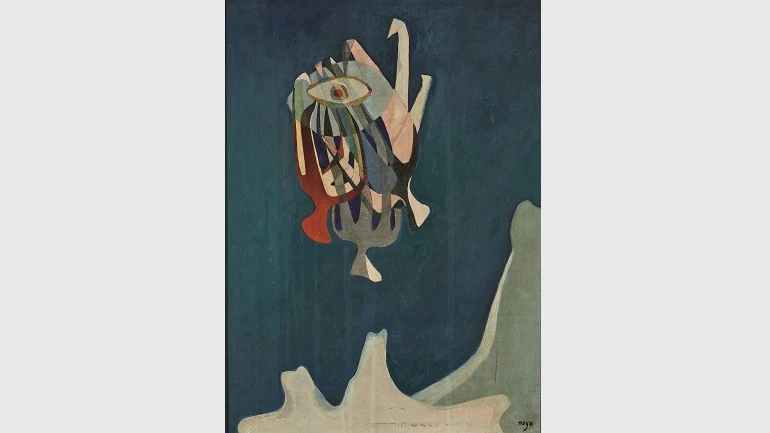
A. Mayo (Antonis Malliarakis). The bird, 1937. Oil on board, 46 x 22 cm. European Cultural Centre of Delphi, Greece
Held on 15 feb 2017
Founded in Egypt with the publication of their manifesto Long Live Degenerate Art, the Art et Liberté Group (1938 – 1948), proposed a new understanding of Surrealism. While a few scholars have taken note of the Cairo-based collective up much of what has been written remains primarily concerned with examining the Group’s leftist political affiliation and its correlation with anti-fascist sentiment upon the eve of World War II. This political framing has left the Group’s artistic and cultural contributions largely unexplored, particularly their advancement of a new definition of Surrealism, called Subjective Realism. Through this new definition, Art et Liberté proposed a new direction for the Surrealist movement which they perceived as one in crisis. The Group rejected the convergence of art and nationalism, aligning themselves with a complex, international and evolving Surrealist movement spanning cities such as Paris, London, Mexico City, New York, Beirut and Tokyo. At the dawn of the Second World War and during Egypt’s colonial rule by the British Empire, Art et Liberté was equally engaged in its defiance of Fascism, Nationalism and Colonialism.
Through consulting a significant body of artworks, most of which are in the exhibition Art et Liberté: rupture, war and surrealism in Egypt (1938 – 1948), along with a diverse corpus of unpublished primary sources, Sam Bardaouil demonstrates how, through a process of acute negotiation and appropriation, the Group developed a distinct Surrealist aesthetic that was at once, internationally minded yet locally concerned. In doing so, the lecture develops how the Group provided a restless generation of young artists, intellectuals and political activists, Egyptian and non-Egyptian, men and women alike, with a heterogeneous platform for cultural and political reform. The presentation uncovers the Group’s pivotal role within an international network of surrealist writers and artists. It equally highlights the Group’s deliberation of the display tactics of exhibition making employed by the Surrealists elsewhere in creating a model of dissent that employed the “form of the exhibition” as a means to breakdown the nationalist, bourgeois and academic dictates that controlled almost every aspect of the artistic sphere in Egypt at the time. The presentation also posits Art et Liberté's significant visual and literary contributions beyond the polemics of post-colonial discourse, advocating for a new art-historical understanding of the Surrealist movement.
In collaboration with
Organised by
Museo Reina Sofía
Participants
Sam Bardaouil is the author of Surrealism in Egypt: Modernism and the Art and Liberty Group (2017). He has taught at universities such as the American University of Beirut and the Tisch School of the Arts, New York University. He is co-founder along with Till Fellrath of the curatorial platform Art Reoriented. They have curated the Lebanese Pavilion at the 55th Venice Biennale (2013), the exhibition Tea with Nefertiti. The Making of the Artwork by the Artist, the Museum and the Public (SMÄK from Munich, IVAM from Valencia, IMA from Paris and Mathaf-Arab Museum of Modern Art from Doha, 2012-2014) and Art et Liberté: Rupture, War and Surrealism in Egypt (1938 - 1948) at Museo Reina Sofia, among many other exhibitions.
Más actividades

CLINIC 2628. A Community of Writing and Research in the Arts
February – October 2026
Clinic 2628 is a project which supports and brings together writings which stem from the intention to offer a space and sustainable time for research work in art and culture. Framed within an academic context which is increasingly less receptive to the forms in which thinking happens and is expressed, the aim is to rescue the academic from its neoliberal trappings and thus recover the alliance between precision and intuition, work and desire. A further goal is to return writing to a commons which makes this possible through the monitoring of processes and the collectivisation of ideas, stances, references and strategies.
The endeavour, rooted in a collaboration between the Museo Reina Sofía’s Studies Directorship and the Artea research group, via the i+D Experimenta project, is shaped by three annual editions conceived as spaces of experimentation, discussion and a demonstration of writings critical of what is put forward by today’s academia.
What forces, forms and processes are at play when writing about art and aesthetics? In academia, in museums and in other cultural institutions, the practice of writing is traversed by productivist logics which jeopardise rhythms of research and experimentation. The imposition of both scientism inherent in the structure of “the paper” and the quantifying of results which demand a criterion of quality and visibility sterilise and smoothen, from the outset, the coarseness that is particular to writing understood from the concrete part of language: phonic, graphic, syntactic and grammatical resistance connecting the language user to the community the language unites and activates. They also sterilise the roughness enmeshed in the same desire to write, the intuitive, clear and confusing pathways that once again connect the writer to those reading and writing, participating in a common good that is at once discovered and produced.
The progressive commercialisation of knowledge propelled by cognitive capitalism moves further away from the research and production of knowledge in artworks and artistic languages and practices. The work of curators and archive, criticism, performances and essays formerly saw a horizon of formal and emotional possibilities, of imagination that was much broader when not developed in circumstances of competition, indexing and impact. Today, would it be possible to regain, critically not nostalgically, these ways; namely, recovering by forms, and by written forms, the proximity between art thinking and its objects? How to write in another way, to another rhythm, with no more demands than those with which an artwork moves towards different ways of seeing, reading and being in the world?
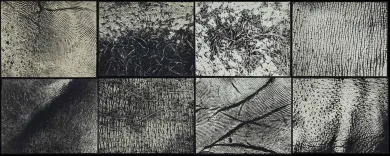
The (legal) person and the legal form. Chapter II
8, 12, 15 January, 2026 – 16:00 to 19:00
As part of the Studies Constellation, the Study Directoship’s annual fellowship, art historian and theorist Sven Lütticken leads the seminar The (Legal) Person and the Legal Form: Theoretical, Artistic, and Activist Commitments to foster dialogue and deepen the hypotheses and questions driving his research project.
This project, titled Unacting Personhood, Deforming Legal Abstraction, explores the dominance of real abstractions—such as exchange value and legal form—over our processes of subjectivation, and asks how artistic practices can open up alternative ways of representing or performing the subject and their legal condition in the contemporary world.
The seminar consists of eight sessions, divided into three chapters throughout the academic year. While conceived as non-public spaces for discussion and collective work, these sessions complement, nourish, and amplify the public program of the Studies Constellation.
In this second chapter of the seminar, the inquiry into the aesthetics and politics of legal form continues with three sessions that pick up the discussions held in Chapter I but propose new lines of flight. The first session focuses on international law via the writings of the British author China Miéville, which allows us to reconsider the notion of the legal form –following Evgeny Pashukanis— and, through it, a variety of (people’s) tribunals. While the crucial concept of the legal person –as the right-holder central to the form of law— was debated in Chapter I, the second session focuses on attempts to extend personhood not (just) to corporations, but rather to nonhuman animals or ecosystems. Finally, the third session poses the question: how can groups and networks use officially recognized organizational forms (such as the foundation or the cooperative) and/or use a collective persona (without necessarily a legal “infrastructure” to match) to act and represent themselves?

Oliver Laxe. HU/هُوَ. Dance as if no one were watching you
Tuesday, 16 December 2025 – 7pm
As a preamble to the opening of the exhibition HU/هُوَ. Dance as if no one were watching you, film-maker Oliver Laxe (Paris, 1982) engages in conversation with the show’s curators, Julia Morandeira and Chema González, touching on the working processes and visual references that articulate this site-specific project for the Museo Reina Sofía. The installation unveils a new programme in Space 1, devoted from this point on to projects by artists and film-makers who conduct investigations into the moving image, sound and other mediums in their exhibition forms.
Oliver Laxe’s film-making is situated in a resilient, cross-border territory, where the material and the political live side by side. In HU/هُوَ. Dance as if no one were watching you, this drift is sculpted into a search for the transcendency that arises between dancing bodies, sacred architectures and landscapes subjected to elemental and cosmological forces. As a result, this conversation seeks to explore the relationship the piece bears to the imagery of ancient monotheisms, the resonance of Persian Sufi literature and the role of abstraction as a resistance to literal meaning, as well as looking to analyse the possibilities of the image and the role of music — made here in collaboration with musician David Letellier, who also works under the pseudonym Kangding Ray — in this project.
These inaugural conversations, part of the main working strands of the Museo’s Public Programmes Area, aim to explore in greater depth the exhibition narratives of the shows organised by the Museo from the perspective of artists, curators and specialists.
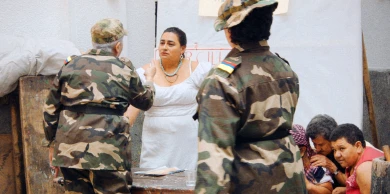
Manuel Correa. The Shape of Now
13 DIC 2025
The Shape of Now is a documentary that explores the challenges and paradoxes of memory, reparation and post-conflict justice, extending a defiant and questioning gaze towards the six-decade armed conflict in which the Colombian State, guerrillas and paramilitary groups clashed to leave millions of victims in the country. The screening is conducted by the Aesthetics of Peace and Desertion Tactics study group and includes a presentation by and discussion with the film’s director, Manuel Correa.
The film surveys the consequences of the peace agreements signed in 2016 between the Colombian State and the FARC guerrilla organisation through the optics of different victims. It was recorded shortly after this signing, a time in which doubts lingered over the country’s future, with many groups speculating in the narration. Correa harnesses the power of images, visual and bodily memory, fiction and re-staging as tools for understanding the conflict, memory and healing, as well as for the achievement of a just peace that acknowledges and remembers all victims.
The activity is framed inside the research propelled by Aesthetics of Peace and Desertion Tactics, a study group developed by the Museo’s Study Directorship and Study Centre. This annual group seeks to rethink, from a theoretical-critical and historical-artistic perspective, the complex framework of concepts and exercises which operate under the notion of pacifism. A term that calls on not only myriad practices ranging from anti-militarism and anti-war movements to activism for non-violence, but also opens topical debates around violence, justice, reparation and desertion.
Framed in this context, the screening seeks to reflect on propositions of transitional and anti-punitive justice, and on an overlapping with artistic and audiovisual practices, particularly in conflicts that have engendered serious human rights violations. In such conflicts, the role played by audiovisual productions encompasses numerous challenges and ethical, aesthetic and political debates, among them those related to the limits of representation, the issue of revictimisation and the risks involved in the artistic commitment to justice. These themes will be addressed in a discussion held after the session.
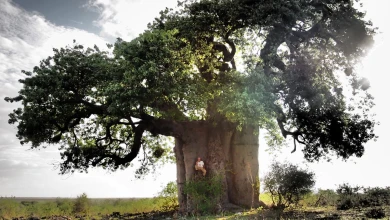
Francisco López and Barbara Ellison
Thursday, 11 December - 8pm
The third session in the series brings together two international reference points in sound art in one evening — two independent performances which converse through their proximity here. Barbara Ellison opens proceedings with a piece centred on the perceptively ambiguous and the ghostly, where voices, sounds and materials become spectral manifestations.
This is followed by Francisco López, an internationally renowned Spanish sound artist, who presents one of his radical immersions in deep listening, with his work an invitation to submerge oneself in sound matter as a transformative experience.
This double session sets forth an encounter between two artists who, from different perspectives, share the same search: to open ears to territories where sound becomes a poetic force and space of resistance.
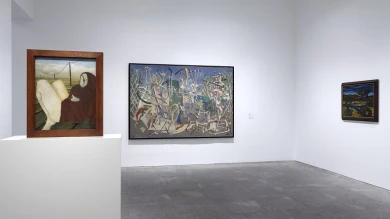
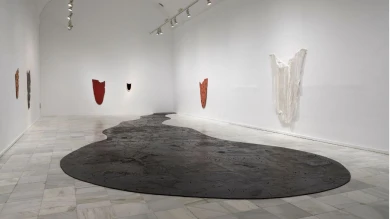
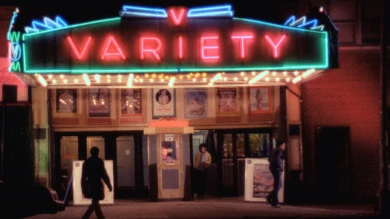
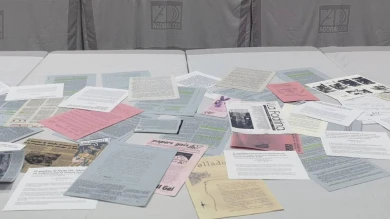
![Miguel Brieva, ilustración de la novela infantil Manuela y los Cakirukos (Reservoir Books, 2022) [izquierda] y Cibeles no conduzcas, 2023 [derecha]. Cortesía del artista](https://recursos.museoreinasofia.es/styles/small_landscape/public/Actividades/ecologias_del_deseo_utopico.jpg.webp)
![Ángel Alonso, Charbon [Carbón], 1964. Museo Reina Sofía](https://recursos.museoreinasofia.es/styles/small_landscape/public/Actividades/perspectivas_ecoambientales.jpg.webp)